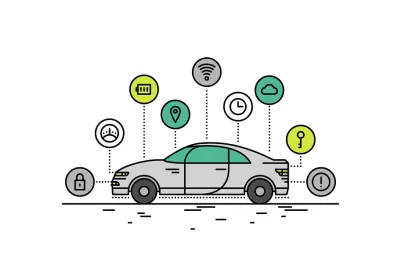I get asked more and more, “when an autonomous vehicle has an accident, who will be liable?” People – clients, contacts, business associates, partners, friends, etc. all wonder whether the legal system is ready to handle this eventuality. With Google’s self-driving car having suffered an accident recently, these questions are more frequent then ever. While Google allowed that “we clearly bear some responsibility”, the word that struck me was “some.” Google plainly felt that the bus driver was partially responsible as well.
The simple fact of the matter is that these accidents are most likely to be treated no different than accidents that involve two drivers. Your vehicle already has a host of automated features that run on some combination of hardware, software and/or mechanical connections. Your adaptive cruise control. Your lane departure warning. Your automatic breaking. All of these can fail. The software can fail. The sensor can fail. The hardware can fail. If any of them fail, the party responsible for that failure is most likely to be legally responsible.
The same will be true when a driver is in autonomous mode. You think the car literally drives itself magically? No. A combination of hardware, software and/or mechanical connections drive the car. Algorithms that most of us can barely comprehend, let alone understand or explain, are going to make the decisions on how the autonomous vehicle reacts in a given situation. If that algorithm makes a decision that causes an accident, or if it works in a manner inconsistent with an applicable standard of care (most likely debated through expert testimony), then there could be liability.
Key Takeaway
The simple fact is that if there is an accident, someone may be liable, same as it is with non-autonomous vehicles. The one party that will be less likely to be liable is the driver. Driver error is often an issue in vehicle accidents, but should be less of an issue when the vehicle is autonomous.
So, what did Google do in response? Google “made refinements to our software.” Luckily for Google, it may very well have an argument that subsequent remedial measures are not admissible in any dispute.




 />i
/>i

